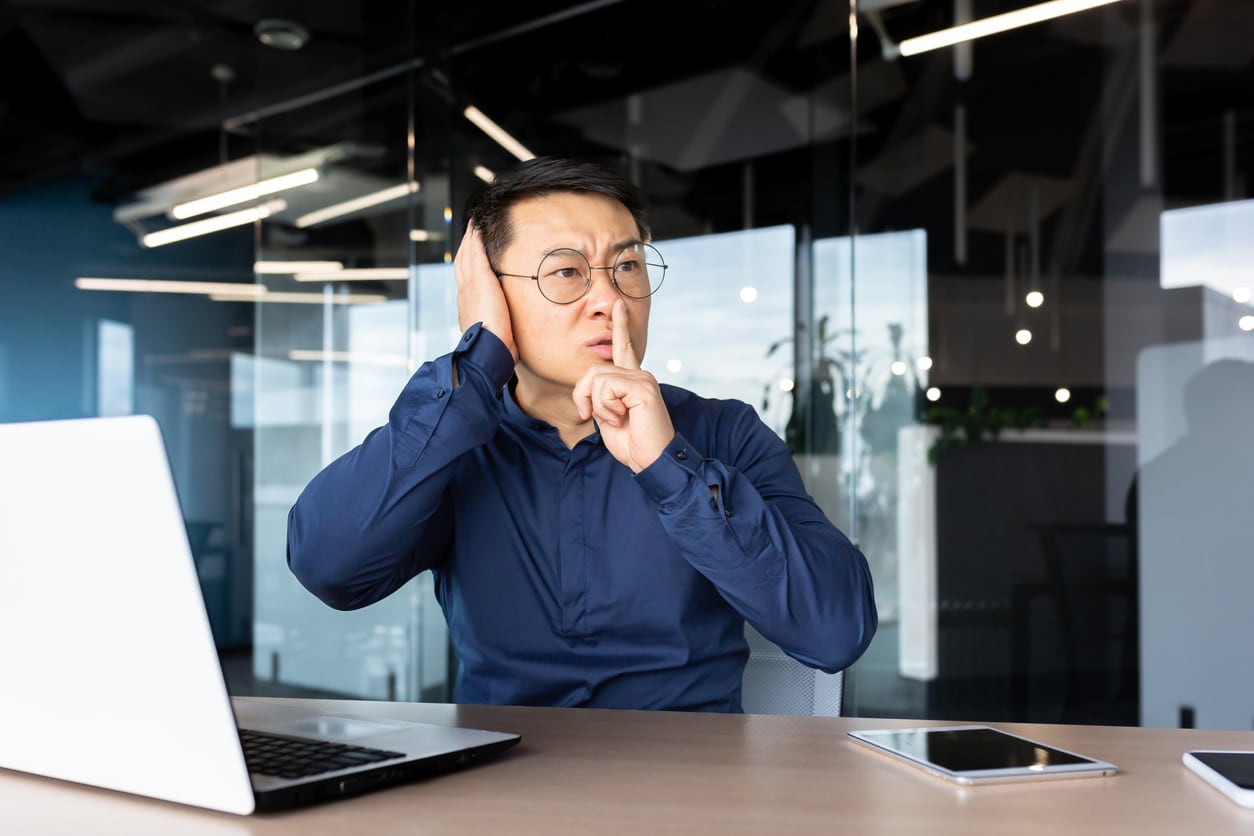According to the U.S. Centers for Disease Control and Prevention (CDC), about 8% of all workers in the United States have tinnitus. If you’re one of them, you’re keenly aware of how tinnitus can impede your workday. Tinnitus is a neurological condition in which you hear a sound in your ear with no physical source. Tinnitus is most commonly known as “ringing in the ear,” but it can also sound like buzzing, roaring, clicking, hissing or humming.

Tinnitus Challenges in the Workplace
- Overly quiet environment. An almost-silent office setting can be extremely difficult for some people with tinnitus because the silence makes tinnitus seem louder or clearer.
- Noisy environment. Some industries, such as construction or agriculture, use large, loud machinery or otherwise create an environment of constant noise that can exacerbate tinnitus.
- Difficulty concentrating. The constant noise in your head makes it hard to focus on work.
- Stress. The constant ringing in your ears heightens anxiety and stress levels, and endlessly competes with the need to stay focused. Stress can make the ringing worse, and the ringing can cause more stress and anxiety. Paired with work-related stressors (deadlines, meetings, bosses), and you’ve got heightened levels of stress.
Tinnitus Management Strategies for Work
We’ve compiled some coping techniques that can help alleviate tinnitus symptoms and stress so you can go back to work.
Tinnitus Sound Masking
Sound masking is a sound therapy that uses ambient sound to mask or drown out unwanted noise, such as tinnitus. This may be done with a white noise machine, music or even a fan or heater. This gentle background noise covers up tinnitus.
This strategy works well if you’re in an overly quiet environment or if you’re feeling stressed by the incessant sounds of tinnitus. Putting on headphones and listening to tinnitus masking sounds or music will counteract the heightened tinnitus. Note: when listening with headphones, beware of turning the volume up too high; listening to music too loudly through headphones can cause or exacerbate tinnitus in the long run.
Hearing Protection
If you work in an industry where loud noise is part of the grind, hearing protection is a must. Loud noise exposure can make tinnitus worse in both the short and long term. Wearing earplugs or ear muffs will protect your residual hearing and slow the further development of tinnitus. You may be able to combine this strategy with the sound masking outlined above by using noise-cancelling headphones or by wearing over-ear earmuffs or earbud headphones.
Strategies to Fight Stress
Tinnitus frequently causes stress and anxiety among those who experience it. Attempting to push through that stress and anxiety will only make the problem worse. Explore strategies for relieving stress, such as breathing exercises, taking a walk outside, doing yoga during your free time or joining a support group. Everyone is different, and everyone’s tinnitus is different, so find something that helps alleviate your stress.
Request Accommodations
The Americans with Disabilities Act (ADA) entitles you to reasonable accommodations in the workplace. Don’t be afraid to speak up to your employer and ask for a change in working conditions, time off, headphones or hearing protection.
Hearing Aids
Hearing aids can be a very effective tinnitus management tool. They can perform tinnitus sound masking therapy by amplifying background noise, and many modern hearing aids even come preprogrammed with tinnitus sound masking programs. Since many people who suffer from tinnitus also have hearing loss, this is a great option to deal with both conditions.
If you’re interested in learning more about tinnitus management, call Southwestern Hearing & Balance today. We would be happy to discuss coping mechanisms with you and find the source of your tinnitus.
